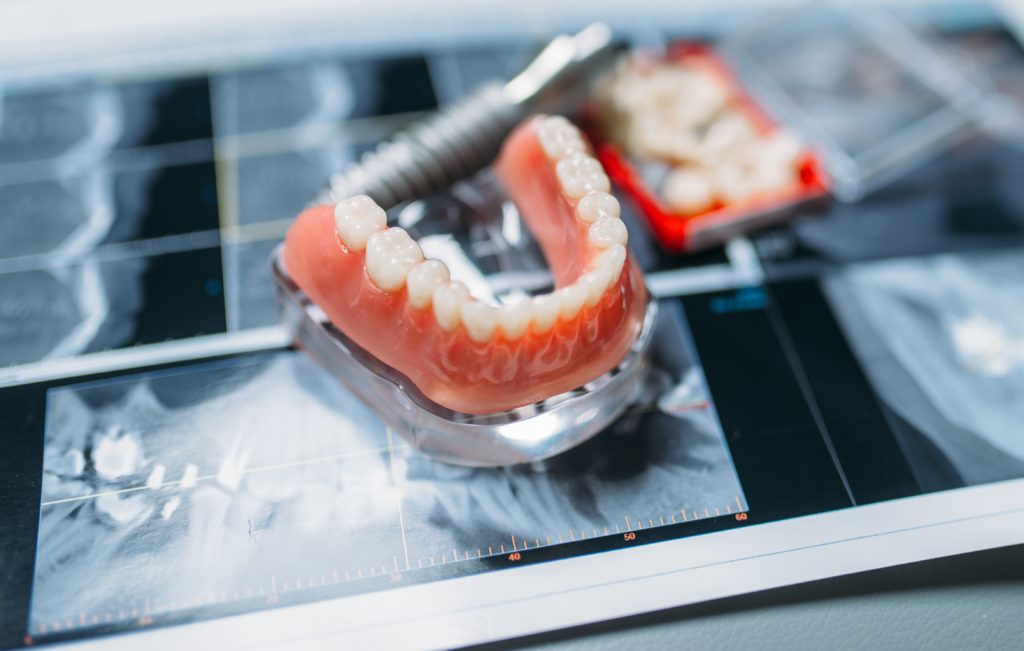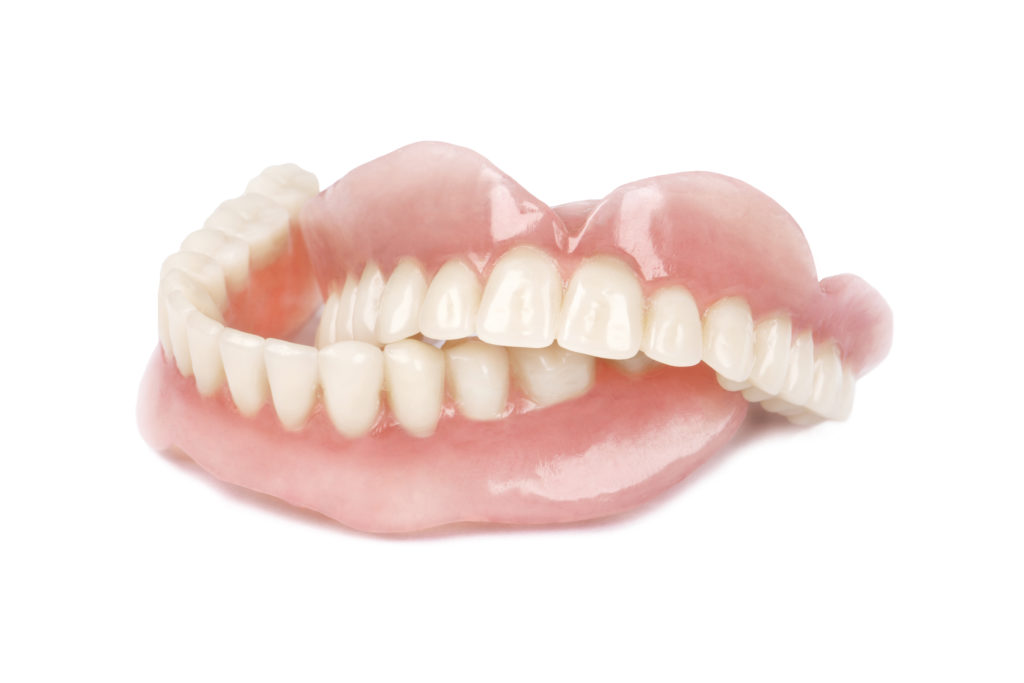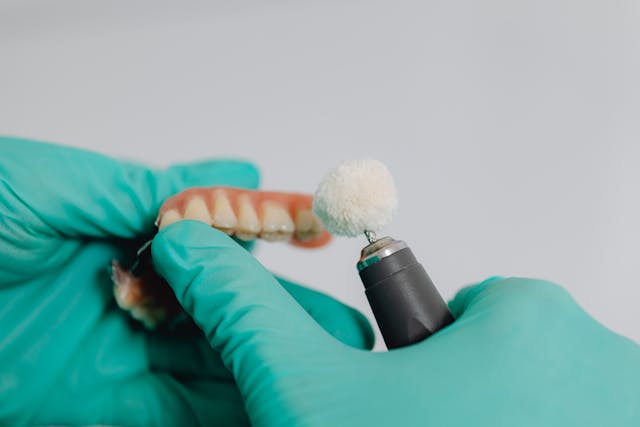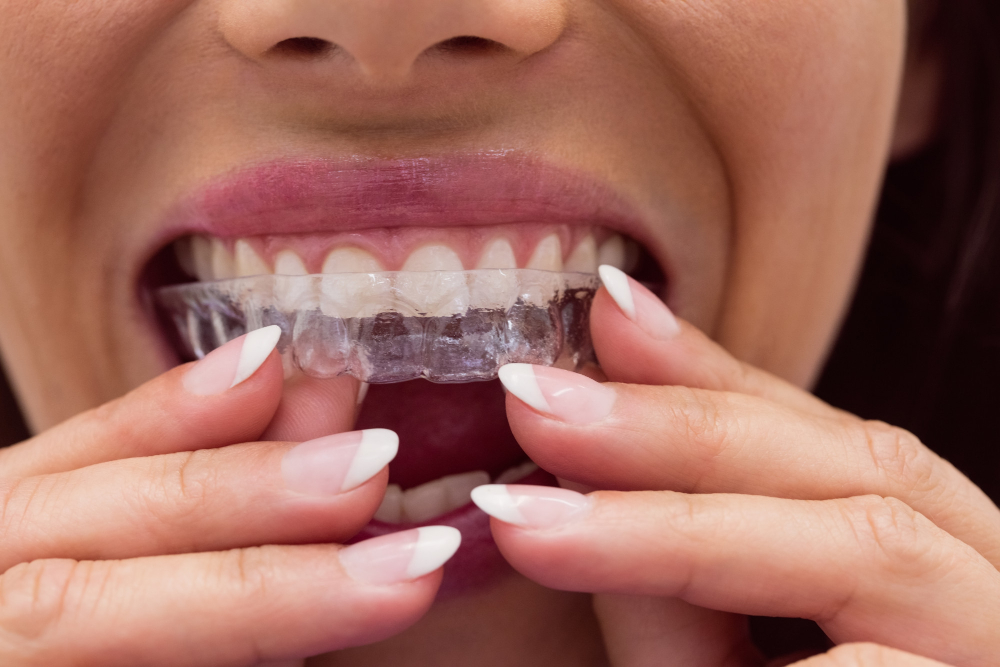Dentures – What Are They?
Dentures are dental appliances used to replace all or some missing teeth in the oral cavity. These are removable replacements and are of two main types –
- Complete dentures
- Partial dentures
As the names suggest, complete dentures are used when a person has all of their teeth missing. And partial dentures are used when only some teeth are missing.
When Is It Time To Consider Dentures?

Research conducted by The Journal of Prosthetic Dentistry estimated that the number of American adults requiring dentures will increase from 34 million in 1991 to almost 38 million in 2020. Furthermore, a 2009 survey showed that about 20 million women aged 40 and above wore some sort of denture.
However, dentures aren’t inevitable. Proper care and routine checkups can go a long way in preserving your oral health and negating the need for dentures.
Listed below are some of the warning signs that could progress to the use of dentures –
You Don’t Visit Your Dentist Regularly
The chief culprits of tooth loss are gum disease and tooth decay – both situations that can be taken care of during your twice-yearly visit to the dentist. Professional cleanings and preventive therapies are imperative in maintaining your oral health.
So if you are someone who has been skimping on visiting your local dental office, schedule an appointment right away.
You Have Early Signs Of Gum Disease
Red, tender, swollen, or bleeding gums are all signs of gum disease. If left untreated, gingivitis or early gum disease progresses into a much more severe form – periodontal disease. The latter negatively affects the bone underneath causing atrophy and eventually, tooth loss. The lost teeth are finally replaced with dentures.
Gum disease is the root cause of about 70% of tooth loss cases. Fortunately, having gum disease doesn’t necessarily mean you will require dentures. Early gingivitis is reversible. Regular professional cleanings combined with proper oral habits are necessary to prevent the proliferation of gum disease.
You Are Experiencing Loose Teeth
Loose teeth are usually a sign of periodontal disease. Since this causes underlying bone loss, it causes teeth to move around their sockets.
Periodontal treatment might be required to treat loose teeth, and in severe cases, these are almost always extracted.
You Have Severe Toothache
Awful toothache is usually a sign of an infection gone haywire. Your dentist will assess the tooth to see if it’s savable. Small decays can be taken care of with fillings. On the other hand, extensive infections can be hard to treat. Your dentist might recommend removing the decayed teeth to prevent the infection from affecting healthy teeth.
What you need to remember is that once a tooth is gone, it is gone for good.
You Already Have Missing Teeth
If you have multiple missing teeth, get in touch with your dentist as soon as possible. Two or more missing teeth can cause increased pressure on the remaining teeth. And the patient must be rehabilitated with some sort of prosthesis at the earliest.
When fewer teeth are doing the work of all teeth, there is an increased risk of losing more teeth. It’s a crazy domino effect that must be controlled.
You Have Difficulty Eating Food
Whether it’s due to missing teeth or toothache on chewing, difficulty in eating might be a sign that you need dentures. Additionally, you could also be suffering from indigestion. When people have a hard time chewing food due to dental issues, they take larger bites. This is pretty hard on the stomach and might cause issues like indigestion.
If you’re suffering from any of the above, it’s time to get in touch with your dentist and discuss your options.
How To Pick A Dentist For Dentures?
A prosthodontist is someone who specializes in dentures. However, if you don’t find one in your locality, a general or cosmetic dentist is also licensed to provide you with one. Here’s how you can find a dentist for dentures –
- Search the internet for “cosmetic dentist” or “cosmetic dentistry near me”. Your search engine will show you the results that are relevant to your area. Make a list of the dental offices that catch your eye and take a trip to assess the dentist’s expertise.
- Another great way to find the dentist of choice is by asking people who’ve had dentures put in. Their experiences with the dental offices in your area will help you gain some insight into their functioning.
- You can also ask your general practitioner or a local pharmacy which establishment they would recommend for dentures. Healthcare workers are pretty familiar with each other and they might help you decide which dentist to visit.
- The American Dental Association has a pretty helpful tool to search for dentists in specific places. It is called “Find-A-Dentist”. It lists all of the ADA Licensed experts in your area.
How Do I Care For My Dentures?
Caring for your dentures is very important, particularly if you want to lengthen their shelf life.
- Handle them with great care. Stand over a sink of water or a folded towel when handling them to prevent them from dropping and breaking.
- Rinse and brush them daily, but without toothpaste. The abrasive agent in toothpaste causes microscopic scratches that become a breeding ground for plaque. Use a brush with soft bristles and a denture cleaner to clean your dentures.
- When you remove your dentures, place them in cold water or a denture-soaking solution. This prevents them from warping or losing their shape.
Caring For Your Mouth And Gums With Dentures
It is important to brush your gums, tongue, and palate even with dentures. Use a toothbrush with soft bristles and gently brush over all your oral structures. This prevents plaque formation and boosts circulation.
Pay extra attention to the teeth that support a partial denture’s metal clasps. Plaque might get trapped underneath them, causing tooth decay.
Do salt water rinses every day and eat a balanced diet to maintain your oral health.
For all your denture needs, come on over to River Rock Dental in Downtown Shakopee. To schedule an appointment with our dental experts, give us a call at (952) 445-5556.






